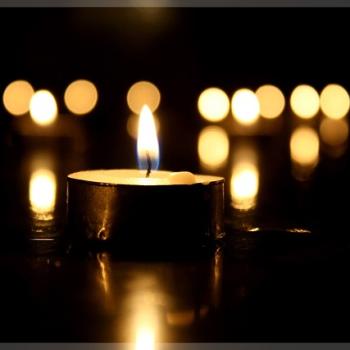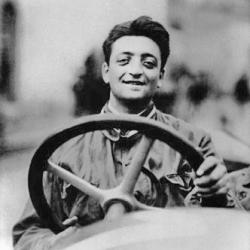For the past few years we have made it a Good Friday custom to watch Mel Gibson's The Passion of the Christ, which stars Jim Caviezel as Jesus. Because it was only translated through captions, when first released, I was not able to see it. I was disappointed that it wasn't accessible to me as a blind person, but to be honest at the same time, from what Ed described when he went to see the movie in the theater, I was a bit relieved. He described it so graphically, I wasn't sure if I could take it.
Now, I have a version made for the blind, with two voices—one speaking the captioned translations of the dialog, and another giving the "color" of what is happening on the screen. The first time Ed and I sat down to watch it together, I was a bit apprehensive.
I believe, however, that as well done as this film is, the movie pales in comparison to the actual event.
Whenever I meditate on Scripture, I imagine myself watching what is happening, and probably because I "see" with my other senses I also sense the sounds and scents—the "color," if you will.
Some friends of ours were on a pilgrimage a few years ago, and they visited Gethsemane late at night. They said the breeze rustling through the old olive trees lent an eerie feeling. Our pastor, who had been to the Holy Land before, said that on this trip he was the last to leave the garden, and he was struck by how desolate it must have seemed to Jesus as he struggled alone in this place.
Jesus knew that His "hour had come." He asked Peter, James and John to stay awake and pray, but they fell asleep. Jesus was left to struggle alone through His extreme physical and mental anguish.
When it is very quiet, you can hear sounds from a long way off. I imagine that the Lord could hear those coming to arrest him, disturbing the night as they moved through the city with their torches to take Him by force, but He didn't resist.
Jesus was put through mock trials and finally sentenced to a most excruciating and torturous death, plus a scourging, ordered by Pilate in a vain attempt to satisfy the crowd. The Jewish scourging—forty stripes less one—would have been bad enough, but Jesus was scourged by the Romans who had no restrictions as to how many stripes they inflicted. They called this "the almost death."
The leather cords of the whip had rocks and jagged bits of pottery knotted into it to tear away the flesh from the body, exposing the muscles and bone with each blow. Breathtaking brutality, all of it unjust. The mind almost cannot contemplate his then carrying a beam of wood toward Golgotha.
So much less is asked of us, and never more than Christ endured—never more fear; never more betrayal; never more malice; never more untruth; never more abandonment; never more pain than Christ's own. Never more anxiety and heartache than his mother endured, as she watched and walked and waited.
As I meditate on the scenes, I imagine myself following Jesus' slow, agonizing way through the streets of Jerusalem. I feel Mary's uncontrollable trembling as I take her arm and hear her sobs, as she sees her brutally beaten Son moving within the mocking crowd, the cruel crown of thorns pressed into his skull.
I hear the din of the crowds who lined the streets to watch—they are shouting and cursing as He and the other two condemned men pass. The Roman soldiers prod them to move along, so that they can proceed with their grizzly duties.
There is Jesus—so weak from the harsh beatings that Simon of Cyrene is finally pressed into helping Him climb the remainder of the way.
Finally arriving at Calvary, the sounds of the agonizing moaning and screams of the men crucified with Jesus and the pounding of the nails—really, spikes.
When Jesus was hoisted up on the cross, He would have experienced the horrible panic of not being able to breathe. His pectoral muscles would have been paralyzed in this position. He could draw air into His lungs, but couldn't exhale without pushing up on the large spikes nailed into His feet crossed over each other, causing unspeakable torture and panic with each attempt to take a breath.
His mother, John, and the other women could only stand there helpless; they could only offer their love and their presence throughout those horrific hours of struggle, until Jesus called out to heaven and finally died.
It was finished, but it was not the end. The marriage between Creator and creation was consummated.
And on Easter morning, something wholly new was birthed with the rolling away of the stone.
The Easter hymn, "Roll Away the Stone," never fails to grab my heart:
They have been saying all our plans are empty. They have been saying Where is their God now?
Roll away the stone, see the Glory of God. Roll away the stone
They have been saying no one will remember. They have been saying Power rules the world.
Roll away the stone, see the Glory of God Roll away the stone
They have been saying no one hears the singing. They have been saying all our strength is gone.
Roll away the stone, see the Glory of God. Roll away the stone
They have been saying all of us are dying. They have been saying all of us are dead.
Roll away the stone, see the Glory of God
Roll away the stone
From our home to yours, have a blessed Easter!
12/2/2022 9:05:39 PM





